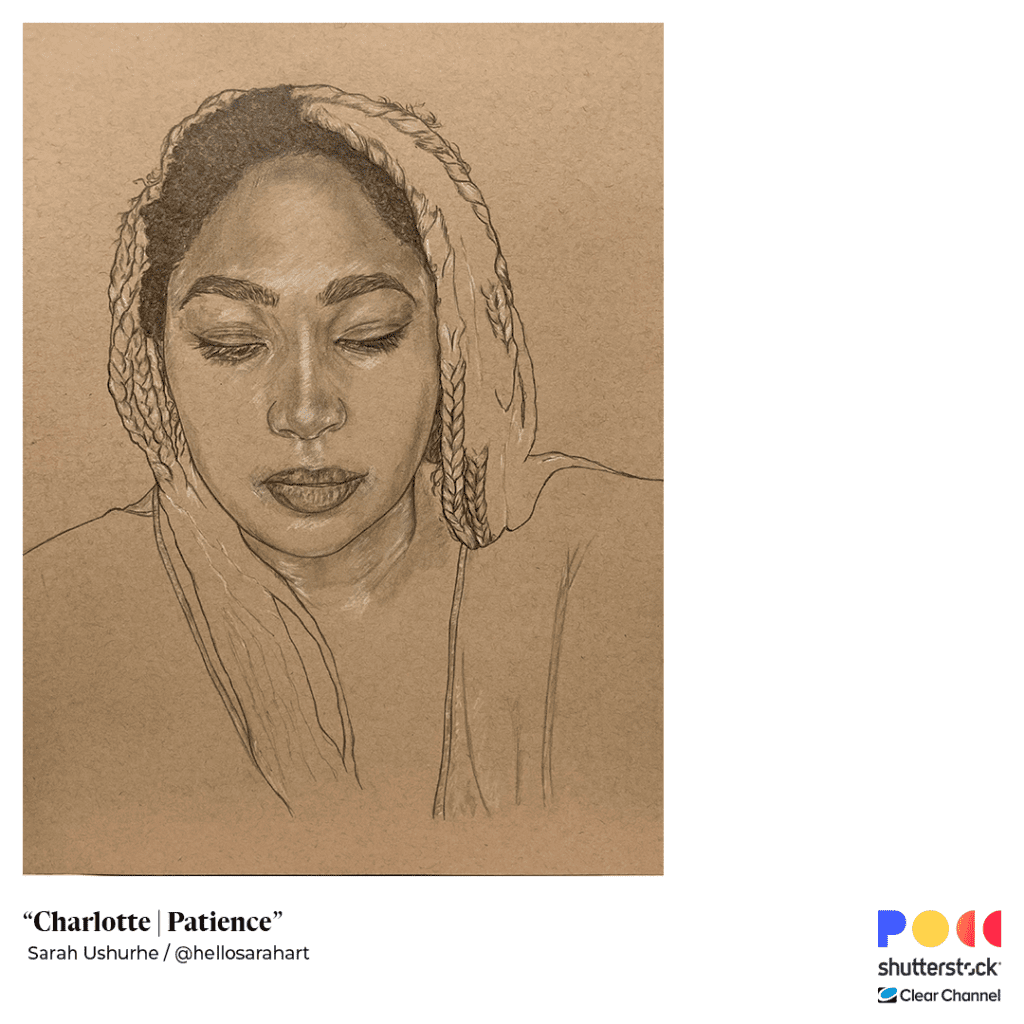Meet the August Artists In Residence: Power
Following the announcement of our first brief in June centred around power, we invited artists to submit their artistic interpretations for our second theme: Power. Twelve artists were selected from a wide number of submissions to receive a £500 grant and have their work displayed on outdoor billboards across the month of August/September.
Today we take a deeper diver into our finalists and the inspiration behind their work.

Charnjit Gill
Charnjit Gill has an MA in Creative Writing and a BA in English Literature & Creative Writing. She is a private tutor and has been writing and performing poetry for over 9 years. She was a member of Apples and Snakes The Writing Room. My work has been published in the London Spoken Word Anthology 2015-2016 by Gug Press, Typishly, Minerva Rising Press, From Whispers to Roars, KYSO Flash, Ghost City Press, San Fedele Press, Starfeather Publishing and Poets Choice. She has 2 poetry collections, ‘Impression’ and ‘For the Moment’ published by Atmosphere Press.
It links to theme of power from the perspective of personal power. The poem is about self empowerment. Its taking negatives things and turning them into something positive.

IHCATEK
My name is Ketachi also known as IHCATEK and I am a Nigerian artist, born and raised in the UK. I have been creating art my whole life but found interest in creating digital art in 2021 during lockdown. My digital art is focused on women of colour highlighting their beauty through colour and texture.
This is a mirrored image of a woman. It represents the different sides that we have as people. The blue side representing calm, neutral and tranquil and the red side representing passion, anger and excitement. There is power in our emotions and they are what make us unique. It is always important to remember that when we come back to ourselves, to our cores and accept ourselves completely; what we can do and achieve can be truly powerful.
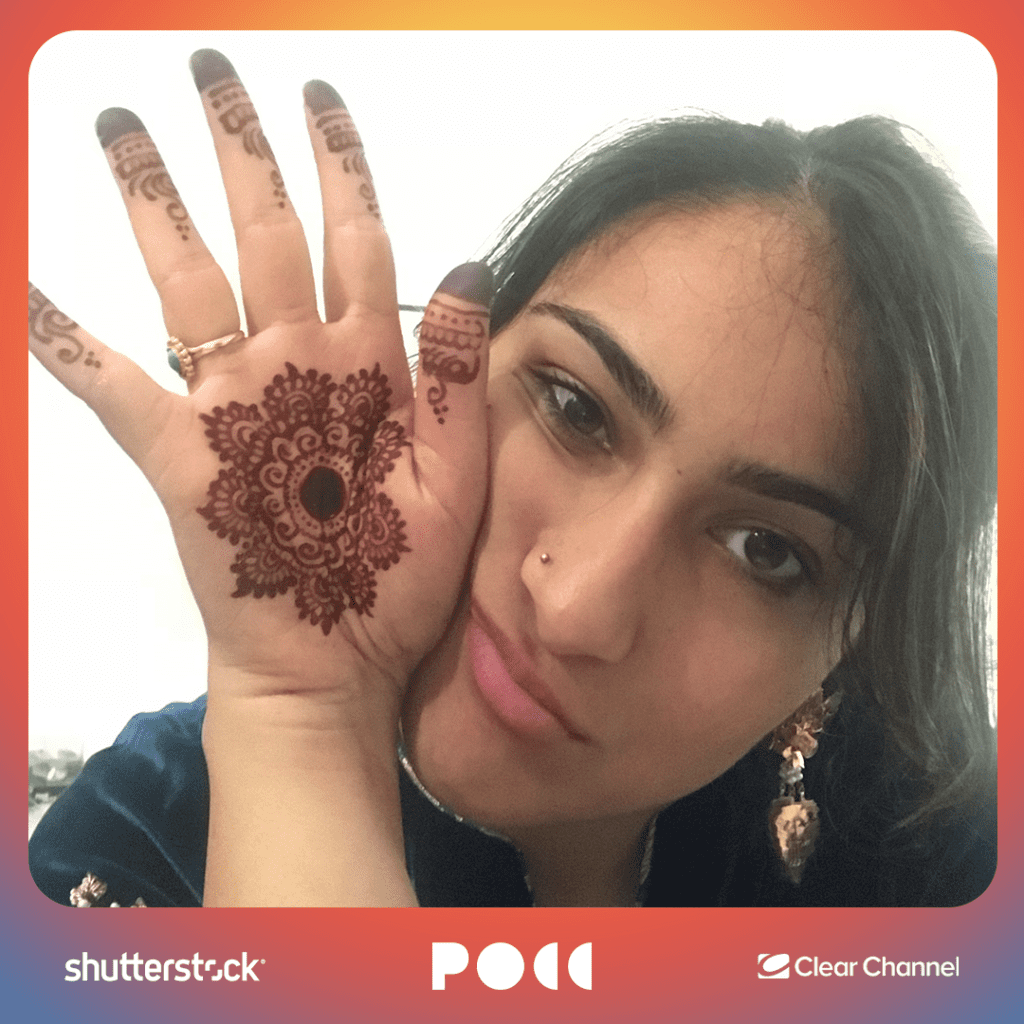
Laila Ghaffar
Laila Ghaffar is a socially engaged writer and cultural practitioner. Her work explores racial justice, immigration and intersectional feminism. Her cultural background informs everything they do, drawing heavily from the richness of language, religion and history to produce an oppositional discourse. Community building is at the centre of their practice. In 2018, she co-founded Clitbait — an intersectional feminist platform for women, trans and non binary participants to translate their individual experiences into art, poetry or writing.
This poem is intended to destabilise the hegemony of English by presenting other languages as powerful and worthy of careful practice. Minority groups are often mocked and marked for their poor command of the English language. In this context, English is a powerful tool. But in my poem, I wanted to explore the phonetic power of other languages. I envision language as a physical space that the speaker has to navigate, building on the idea that language has the power to construct alternate realities.
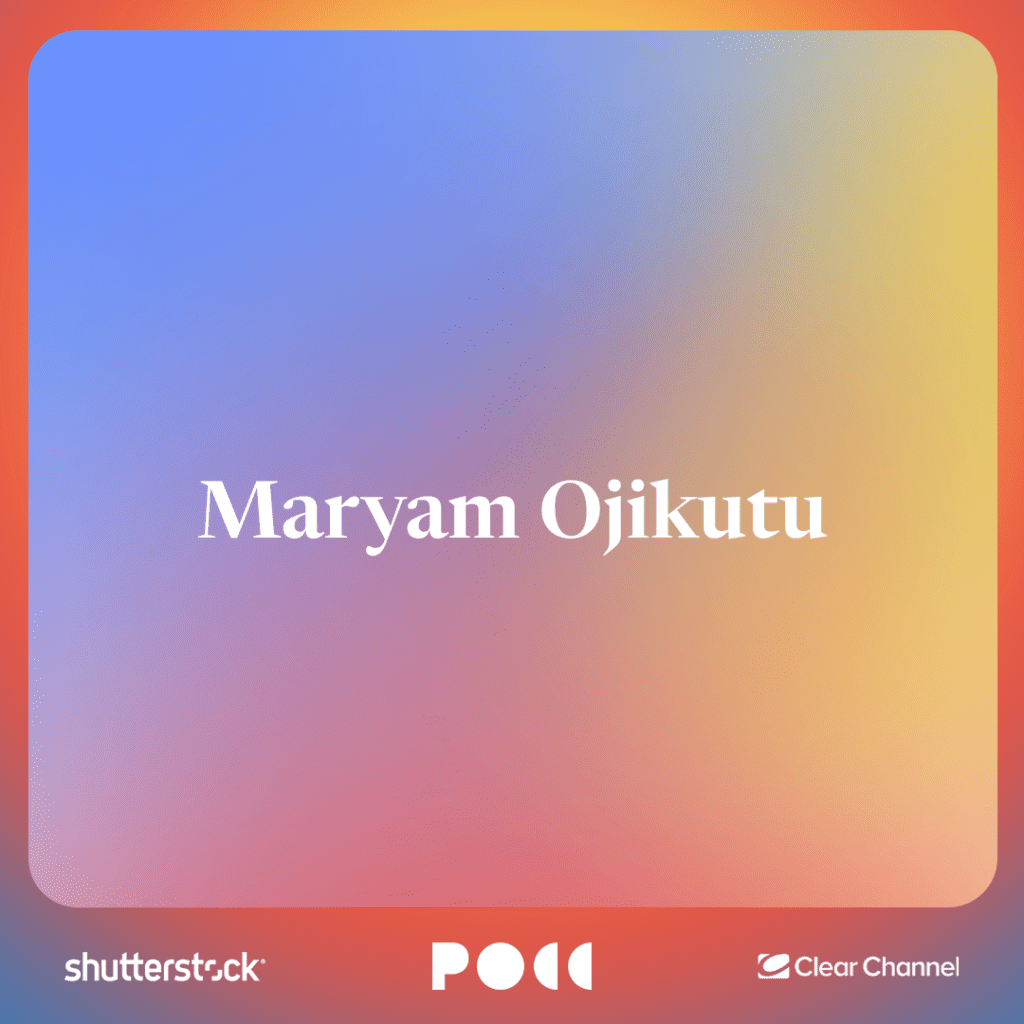
Maryam Ojikutu
Maryam Ojikutu is a fine artist from and in London. Their practice entails exploring themes of gender, race and identity through the mediums of photo, video, writing, drawing and conversation from a conceptual lens. Maryam often states: “my work is a means of self exploration, it is how I learn about the parts of me I don’t understand and in turn make sense of the world we exist in and where I fit in within it (if at all).” As well as this, they are passionate about facilitating a dialogue surrounding the importance of art education for black, working class people.
“boy” is born out of conversations with both cis-hetero black men and queer masculine people in my life. Despite these groups of people never interacting socially – thoughts, and experiences are shared between the two despite either side’s evasions for each other and likely without the other’s knowledge. This work represents this silent dialogue and tussle for power between subjects.The subjects in this photo appear to be at odds, but are still united by their experience of masculinity and blackness – my aim was to facilitate a meeting space for these groups of people independent of the power structures at large.
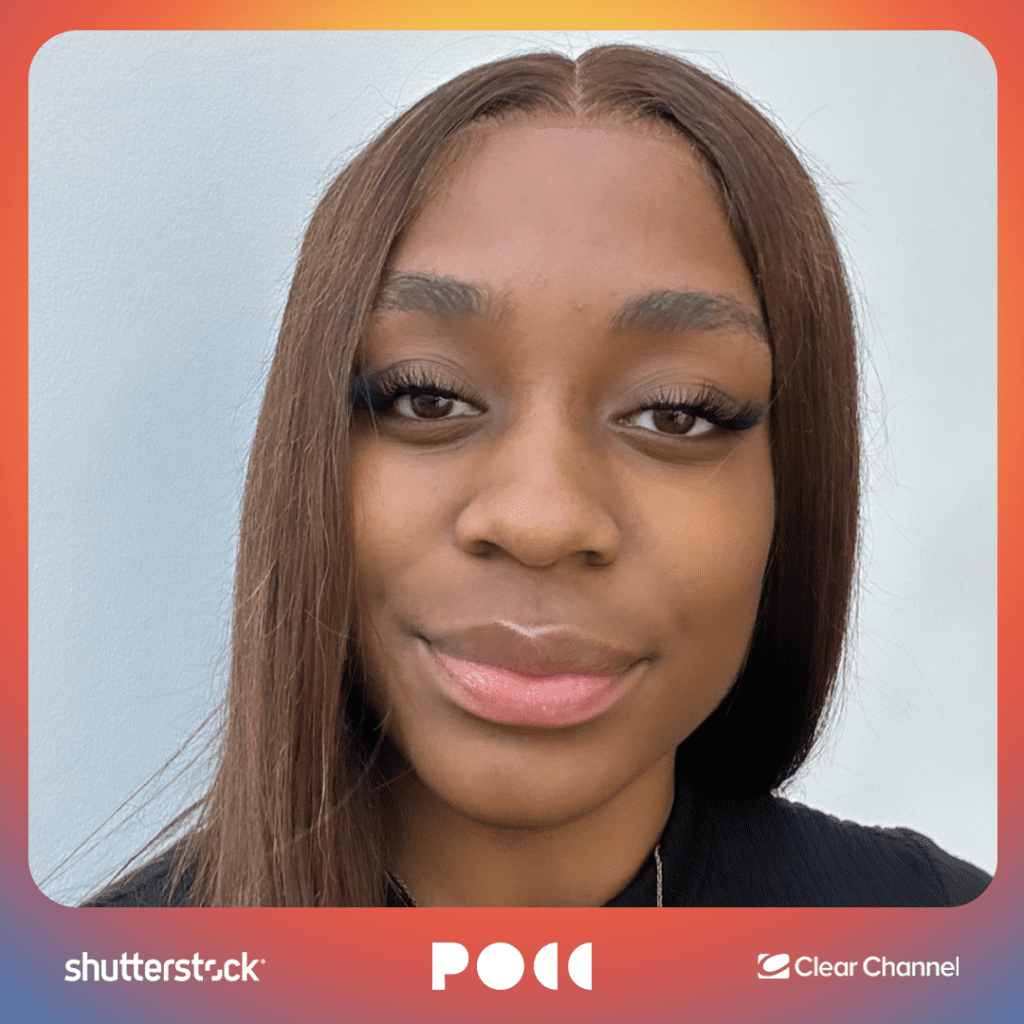
Nadine Scarlett
I am a Jamaican-British fashion and portrait photographer with a passion for telling stories. My work explores culture and identity, heavily influenced by my own personal environment. I am fascinated by documenting people and subcultures, drawing on personal, real-life environments to inspire my concept lead work.
A reminder that we must pay homage and celebrate the beauty of our culture. ‘An Ode To The Panthers’ is a series that recognises the presence of black culture within British history; transforming political discourse into a concept-led narrative.Often misrepresented, the Panthers fearlessly fought for racial justice and became a powerful worldwide movement. Their infamous aesthetic still exists within modern fashion and stands as a testimony to the power of their legacy. The intelligence they recognised within themselves was not often understood at the time. But seeing the change they brought forward, now paints them as the wise.
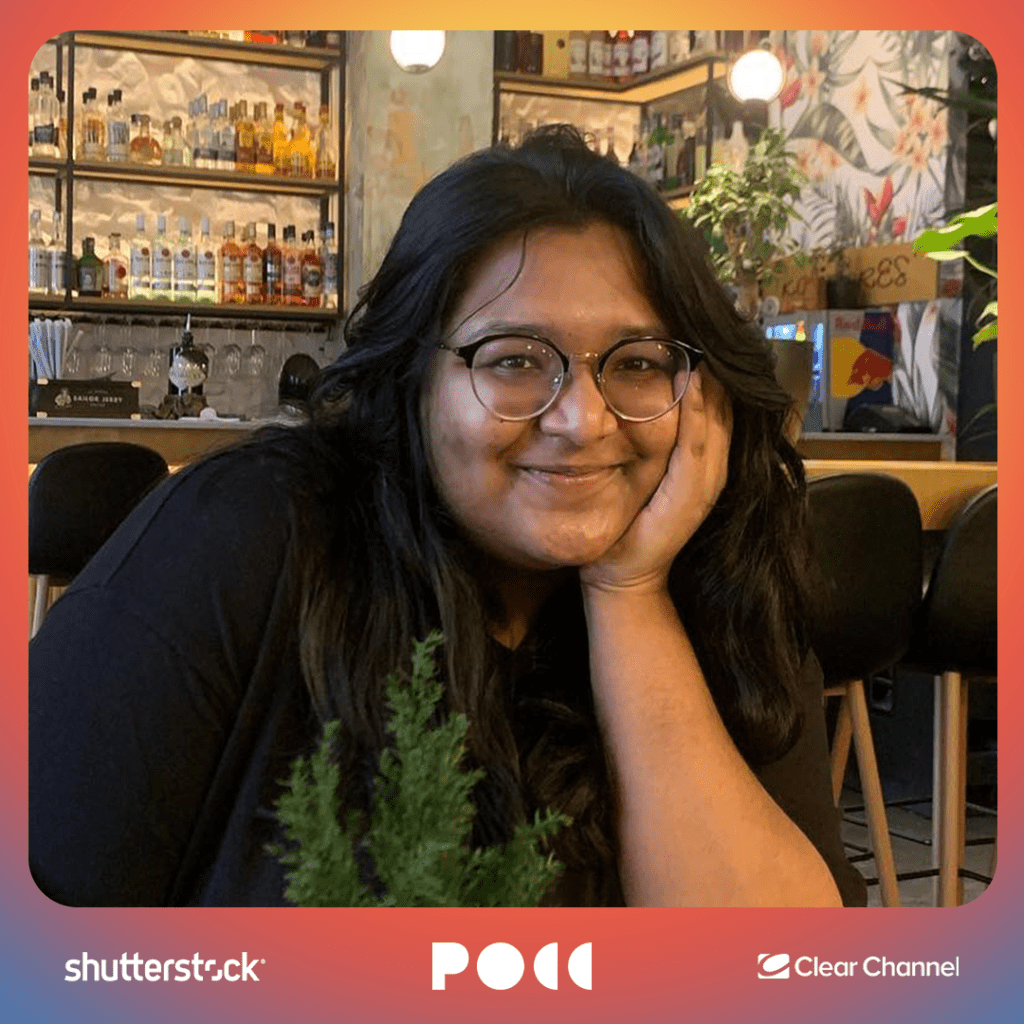
Pavani Konda
Pavani Konda is a filmmaker, poet and storyteller. She is curious about the human attempt to find meaning in their existence, as well as how and what it means to be human shines through the differences of people’s history and culture. She explores both what it means to wonder and sometimes simply be a twenty something brown girl that was born in India and grew up in the UK, in this world through the only way that even begins to help her make sense of things… words.
Are we all supposed to be fighters? This is the question that my piece explores through words. It’s the contemplation on the wars waging within us over life times and how simple it becomes at the end,when we wonder what it all means. Our selves and the lives around us are affected by the powers that rule, whether it be political, social or spiritual. In this ever changing world, this piece knows that these days our minds recognise the soldiers we’ve become but wonders is that really what we’re made for? What have all these powers done to us?

Sarah Ushurhe
Sarah Ushurhe is an artist, Illustrator and writer from London, UK. She adds subtle and intricate details to her work with pencil, experimenting with both animated and static forms. This has included her GIF-style art history short ‘Fanny Eaton: The Forgotten Pre-Raphaelite Model’, which aired as part of the programme ‘Get Animated! BBC Introducing Arts’ on BBC Four and also online as part of BBC Arts New Creatives series.
Part of the Ataraxia series. Moments of patience are captured with subtle lines of detail, depicted through the use of pencil and white charcoal. Despite any unforeseen difficulties that may come one’s way, power rests in the capacity to exercise patience in order to attain long-term goals and peaceful moments.
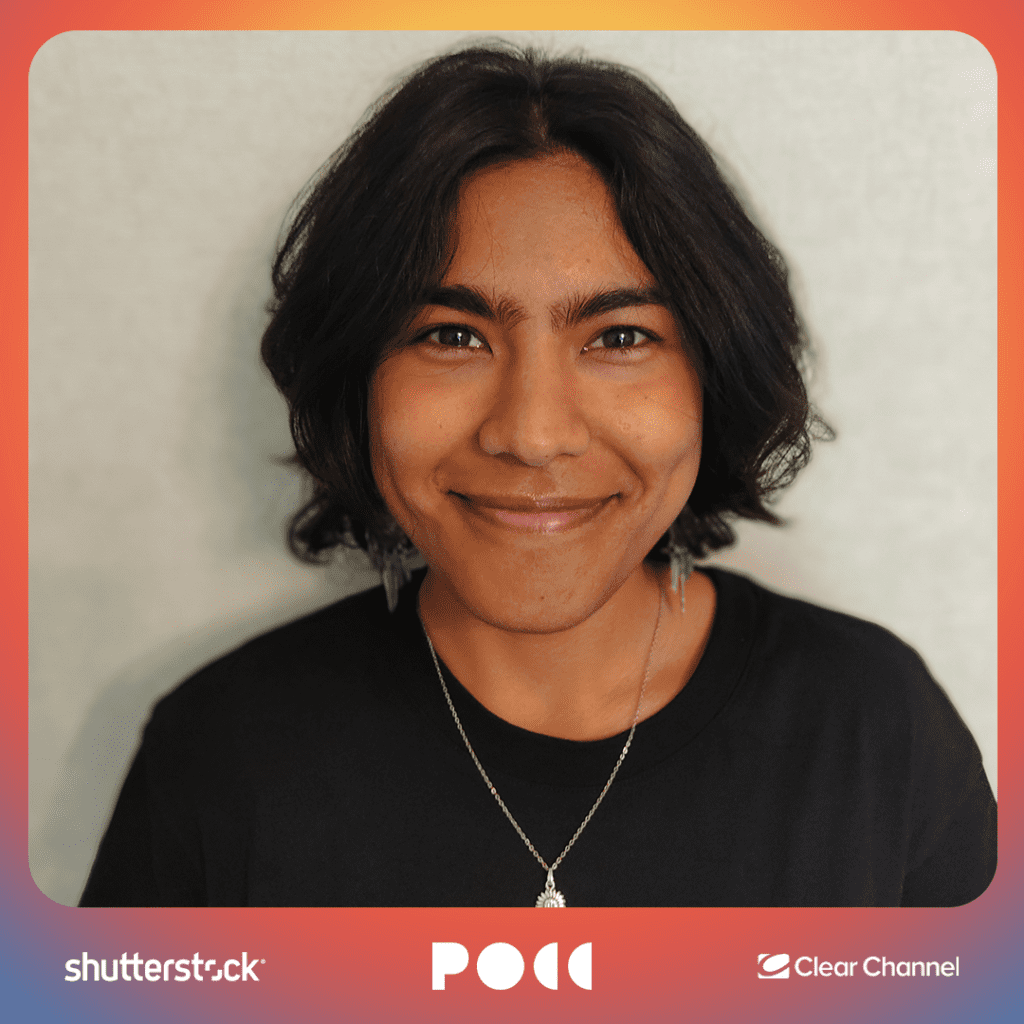
Srija Shrestha
I am a Nepali artist and illustrator currently based in Scotland. I graduated from Teesside University with an MA Illustration degree in 2022. I practice visual storytelling through zines, comics, riso prints, cyanotype prints and illustrated short films. My work is based around the themes of mental health and emotional wellbeing. More recently, my practice engages the theme of home, belonging and identity. I have been practicing presenting personal stories of exploring home and identity through Nepali language and culture while also connecting them with the stories of finding a home away from home.
This illustrated piece titled ‘You Are Powerful’ is a gentle acknowledgement of everybody, especially Asian friends and families who are silently struggling with their mental health. Many Asians, particularly students who leave their home countries to pursue work or education in a new country face lots of mental health challenges like isolation, anxiety, extreme homesickness, feeling unsupported and lack of belongingness and identity. This illustration featuring soothing shades of blue and soft flowers, sends love, peace, and encouragement to all those who need it now. You are not alone!
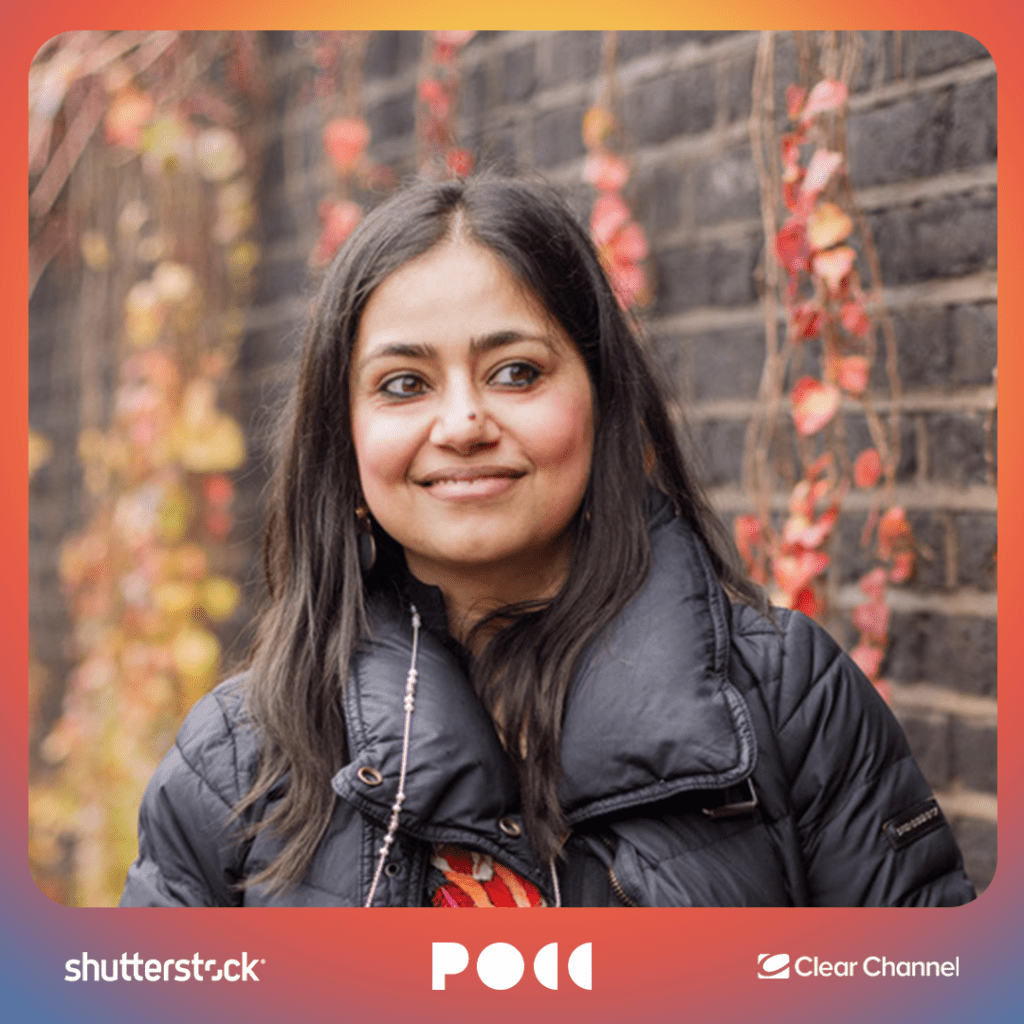
Sujata Setia
“Following a career in journalism in India, I moved to UK in 2009, to complete Masters in International Relations from King’s College London.
My tryst with photography came with the birth of my daughter and the simultaneous deterioration of my mother’s health. Belonging in that liminal space between joy and grief, forced me to speak a language that went beyond words.
Over the past two years, I have focused on photographing sensitive marginalised narratives through my series “Changing the Conversation” and “Invisible” that have received several international awards including including winner of British Journal of Photography – Female in Focus 2022.”
“A thousand cuts” is derived from the ancient Asian form of torture called “Death by a thousand cuts” or “lingchi”.
This series created in collaboration with the charity – Shewise, presents a photographic study of patterns of domestic abuse in the South Asian community through individual narratives of the survivors. As someone who has grown up witnessing domestic violence in my home, I saw how he chose for her. He chose how she lived and existed. Society, cultural norms, genetic predispositions, gave him that power over her…
This image is about regaining of power by the survivor. Photographed here is Phoenix – عَنْقَاء (Anqā). This is the name she has chosen for herself. Because every time circumstances buried her under the ground… she rose like the Phoenix.
For this image, I have used the ancient Indian art form of paper cutting to make cuts on the body of the portrait and the colour red that shows through these cuts signifies not just strength but also the onset of a new beginning.
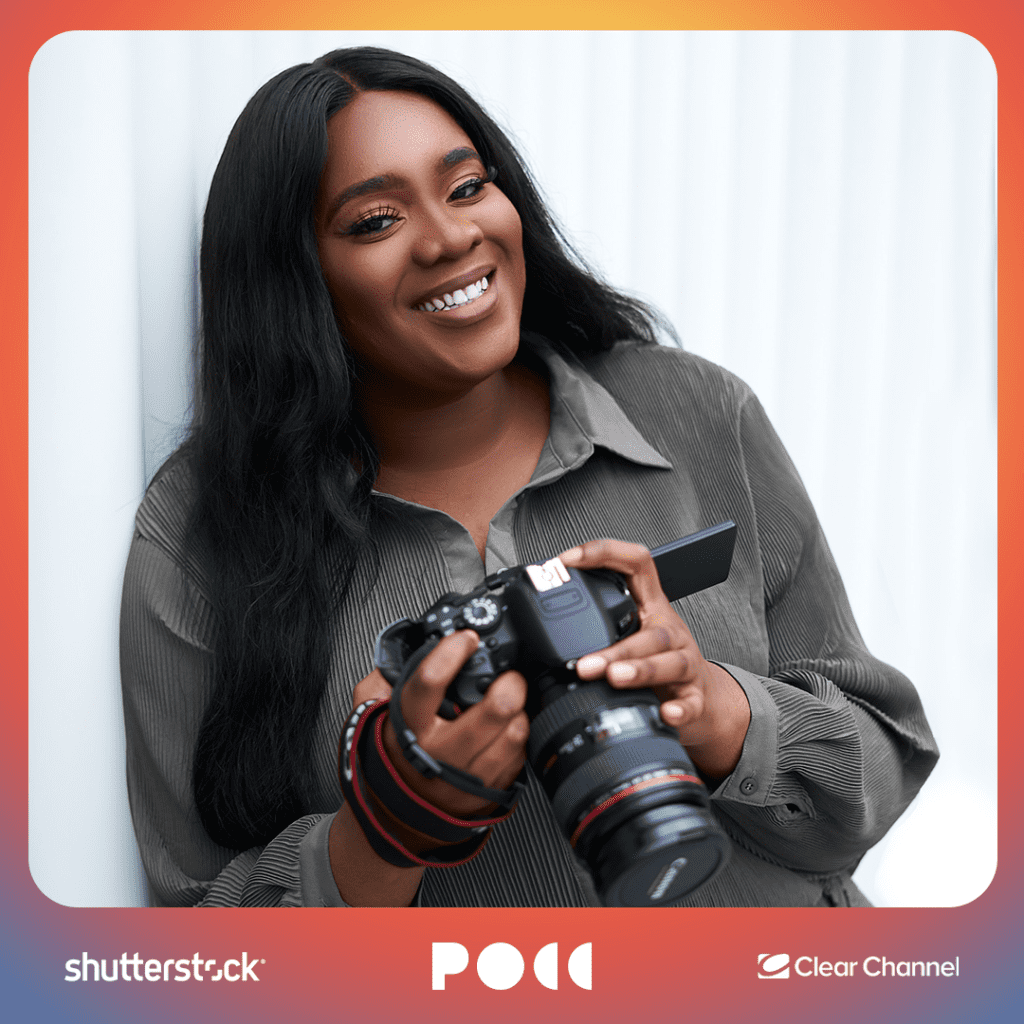
Tobi Sobowale
At the heart of Tobi’s work is an intimate connection with her subject. The British-Nigerian Beauty and Fashion photographer from South London focuses on capturing the overlooked quieter expressions of people.
Her work introduces narratives about Black beauty, identity, and culture, embracing themes of the past and how they present themselves in today’s world. Tobi challenges societal stereotypes that are placed on people, particularly black women, often inspired by her Yoruba heritage and upbringing in South London.
Through visual storytelling, she uses bold colours and dynamic lighting to evoke emotion and thought for those who experience the work she creates.
Black Hair, although admired, is constantly discriminated against. In the UK, race-based hair discrimination remains a systemic problem in the workplace – from hiring practices to daily workplace and education interactions – disproportionately impacting Black women’s employment opportunities and professional advancement.
The “Don’t Touch My Hair” series is a body of work that celebrates the versatility of Black Hair by amplifying hairstyles such as the Afro. Looking at both the beauty and objectification of black women and their hair, this body of work aims to encourage and empower.

Ugochukwu Paul Nnaji
Ugochukwu Paul Nnaji is a 19 year old Law student at the University of Lagos, Nigeria. He is primarily a digital illustrator to whom art is a means of self expression and a science to be explored.
He does paintings in various styles from more painterly to graphic styles, but his work mainly centers around elevating real life phenomena, objects and situations for the purpose of conveying a social message or a past experience in order to inspire and improve the lives of those around him for the better.
This painting depicts the most insidious power-play binding Nigerians to a fate of bad leadership; the ruse of ‘respect’.
Depicted by the background characters, from childhood, Nigerians are put in the same shackles and uniforms of ‘respect’, which is just completely stifling one’s agency and will to obey those of any superior.
Shown by the older foreground character, we grow in these same uniforms and shackles that have dulled our power of independent critical thinking over time such that even when the shackles break, our minds are still bound and we don’t resist when bullied by those ‘in power’.

Zoe Gyamfi
Zoe Gyamfi is a female British-Ghanaian fine artist and illustrator based in London. Her fine and illustrative artworks both possess a loose, gestural quality that reflects her love for mark-making. She is particularly interested in the ways that she can use colour, as well as the power of storytelling to dynamically represent themes of escapism and day-to-day life.
Inspired by Waterhouse’s “Circe Offering the Cup to Ulysses.” What particularly resonated with me was how her body language exudes power and dominates the canvas.
For my piece, what I wanted to show was my lived experience: in particular the feelings of disorientation navigating an over saturated landscape. As well as how isolation prevails in a world that has been tagged as interconnected. The subject draws parallels with Waterhouse’s Circe; navigating with a contrived sense of purpose – in the hope that the cracks in her landscape will not be reflected upon herself.






